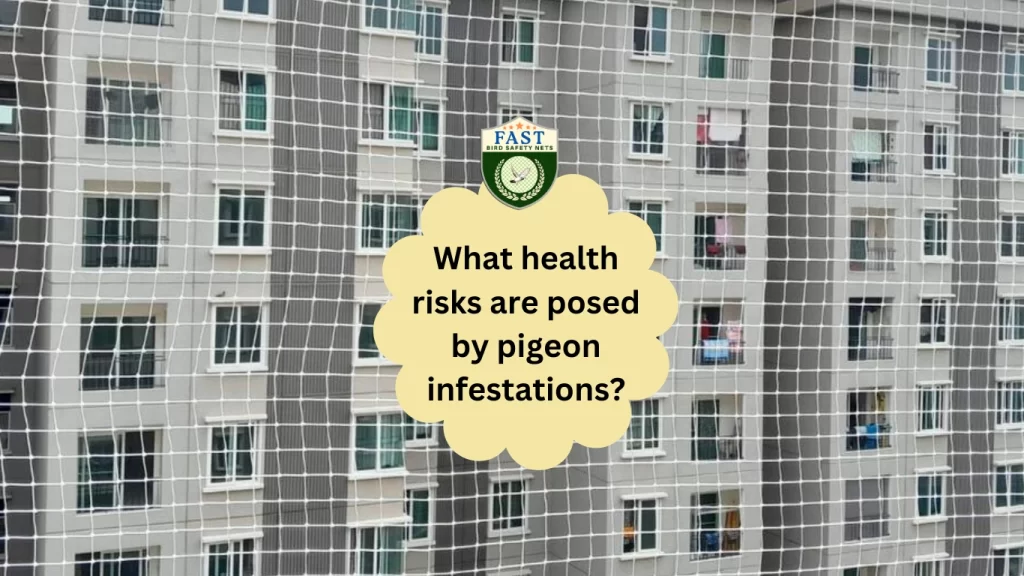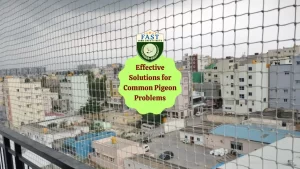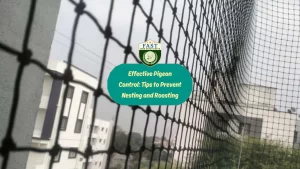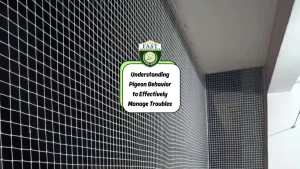Pigeon infestations can pose several health risks due to the birds’ droppings, feathers, and nesting materials. Here’s an article outlining the health hazards associated with pigeon infestations:
Introduction:
Pigeons are a common sight in urban environments, often congregating in large numbers around buildings and structures. While they may seem harmless, pigeon infestations can pose significant health risks to humans. In this article, we’ll explore the various health hazards associated with pigeon infestations and the importance of addressing them promptly.
Health Risks of Pigeon Infestations:
Spread of Diseases: Pigeon droppings can harbor a variety of pathogens, including bacteria, fungi, and viruses, which can cause diseases such as histoplasmosis, cryptococcosis, and salmonellosis. When dried pigeon droppings are disturbed, these pathogens can become airborne and pose a risk of respiratory infections.
Skin Irritations: Contact with pigeon droppings or feathers can cause skin irritations and allergic reactions in some individuals. Pigeon droppings may also contain uric acid, which can cause skin burns or irritation upon contact.
Eye Infections: Exposure to pigeon droppings or contaminated surfaces can increase the risk of eye infections such as conjunctivitis (pink eye) or keratitis (inflammation of the cornea).
Slip and Fall Hazards: Accumulation of pigeon droppings on walkways, staircases, and other surfaces can create slippery conditions, increasing the risk of slip and fall accidents.
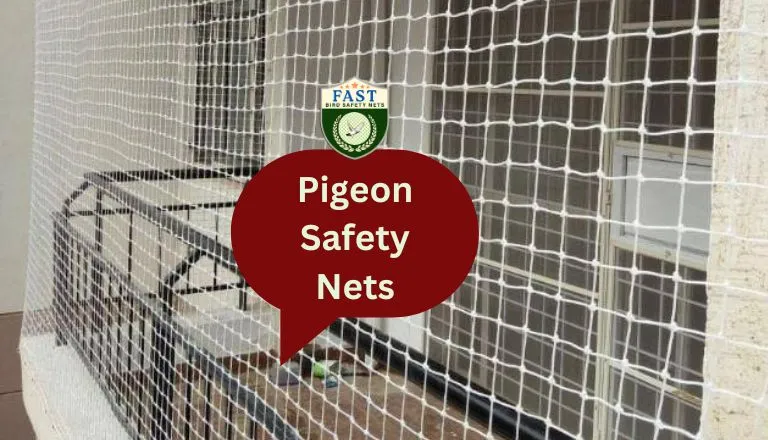
Preventing Health Risks Associated with Pigeon Infestations:
Bird Control Measures: Implementing bird control measures such as bird netting, spikes, or deterrent gels can help deter pigeons from roosting or nesting on buildings and structures.
Regular Cleaning and Maintenance: Regularly clean and disinfect areas affected by pigeon droppings, feathers, or nesting materials to minimize the risk of disease transmission. Use appropriate protective equipment such as gloves and masks during cleaning activities.
Sealing Entry Points: Seal off potential entry points such as gaps, vents, and openings in buildings to prevent pigeons from accessing indoor spaces.
Professional Pest Control: In severe infestations, seek assistance from professional pest control services to safely and effectively remove pigeons and implement long-term bird control solutions.
Conclusion:
Pigeon infestations can pose significant health risks to humans, including the spread of diseases, respiratory issues, skin irritations, eye infections, and slip and fall hazards. It’s essential to address pigeon infestations promptly and implement appropriate bird control measures to mitigate these health risks and ensure a safe and healthy environment.

